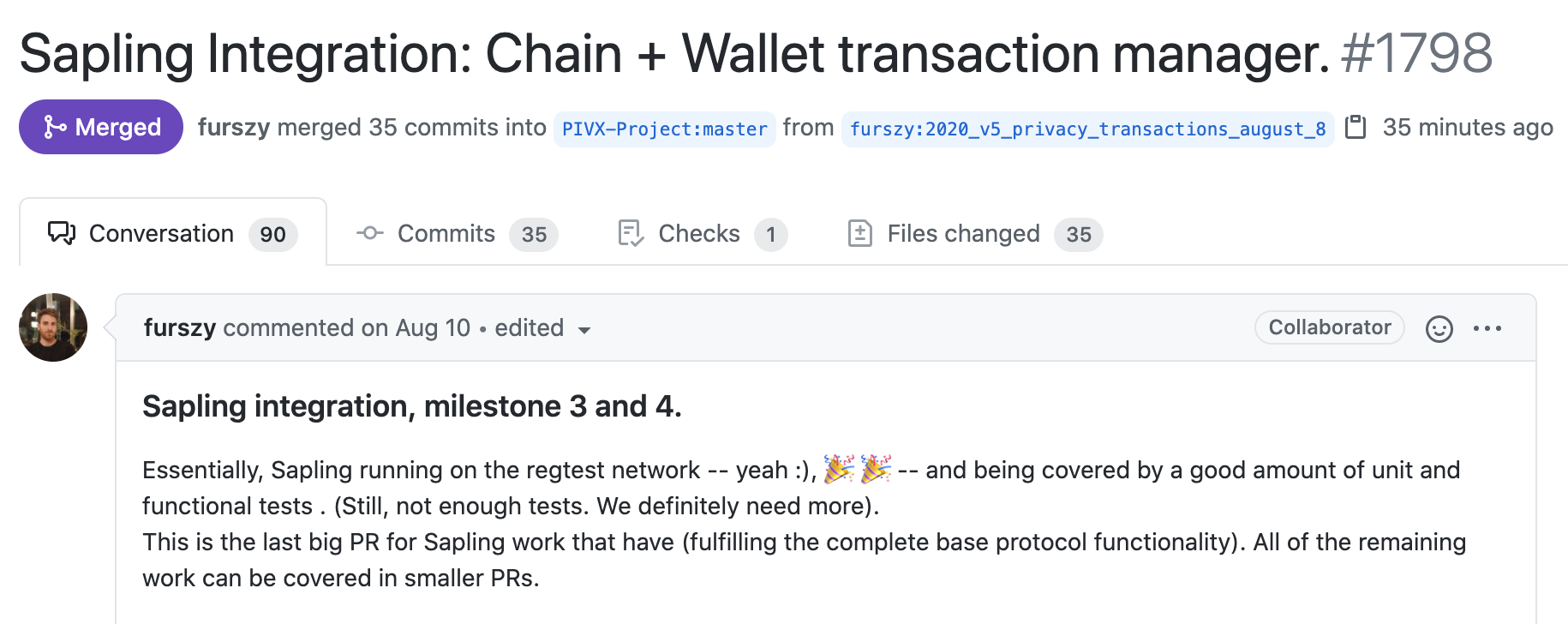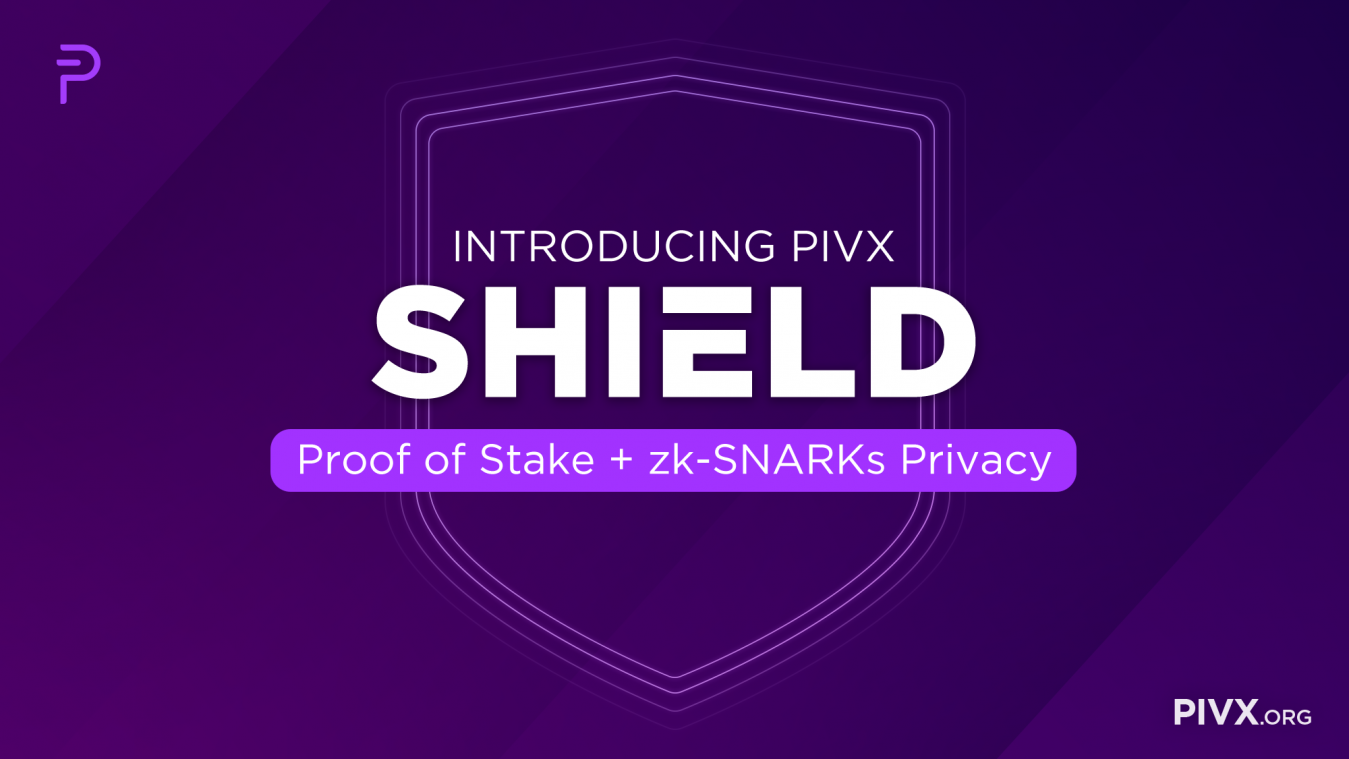Time is fluid, and as humans, we tend to experience time in a unidirectional manner. The same can be said of technological advancements, as one experiences more time, one is also simultaneously experiencing more technology. Both exist, and both are moving in a rapid fashion. How one engages with this tech layer is often not easy, as emerging markets and marketers will often “sell” pseudo-truths that quickly become “truths”, and soon, entire segments of the population begin to use said tech without understanding fundamental realities underlying them. Thus, it is beholden upon those projects who are taking a stand for their vision and mission to continue to vocalize its observations, developments, and use for the world.
Over the past 5 years, we’ve experienced tremendous growth in the cryptocurrency space. Specific to the sector focused on preserving users privacy, we’ve seen many expansions and explorations, ranging from off-chain coin-mixers, to on-chain anonymity protocols including ring signatures (like Monero uses), zk-SNARKs, and even Zerocoin (which PIVX used and was the first Proof of Stake project to ever do so). Also over the past 5 years, the amount of regulation, integration, and general consumer use has grown. With this, the ability to track, collect data, and even exploit various privacy protocols has also expanded. Lastly, many so-called “privacy” projects have greatly stepped back from and/or denounced their privacy features, while other projects that marketed themselves heavily as “pro-privacy” have been revealed as nothing short of slick salesmen touting basic TOR connections.
Since its inception in January of 2016, PIVX has continually strived for, built, and delivered better privacy and anonymity features in the Proof-of-Stake segment of blockchain technology. Starting with coin-join, it pivoted to a novel (and crypto-first) implementation of the Zerocoin protocol in 2018. While this integration provided robust privacy, the protocol had its issues and ultimately had to be retired. For example:
- Large computations and proof sizes
Although PIVX core developers successfully developed Bulletproofs and managed to shrink the size of the cryptographic proof from more than 25kB down to 11kB, and while the developers had implemented a protocol for mobile zerocoin transactions, the impact on the chain for future growth as well as speed of confirmations would have been limiting.
- Forced “fixed” denominations
Due to the setup, users were forced to transact privately from a handful of preset denominations. Thus, if you wanted to send a number that was NOT divisible by the preset denominations, you were out of luck.
- Clunky “minting” requirements
In order to send PIV privately, a user was required to “mint” the corresponding amount desired to be sent PRIOR to the transaction. Depending on the amount, and network at any given time, this could take seconds to a minute to compute. Additionally, this created another “step” for an end user, which could lead to confusion about “what was available” to send privately, and how many total PIV were in one’s wallet at any given point in time.
- Fatal libzerocoin library flaw
On April 9th, Zerocoin exploit was identified and it was found that all projects that were using the libzerocoin library were vulnerable to the exploit. It doesn’t mean that Zerocoin is dead, however the PIVX core developers had already started research and planning a new privacy protocol, mostly due to Zerocoin protocol being outdated and technically inferior to other privacy protocols available on the market.
We are excited to introduce SHIELD; the result of PIVX’s research and successful custom implementation of the highly vetted and academically proven zk-SNARK Sapling protocol, initially developed by the Electric Coin Company. As on November 4th, 2020, we are proud to announce that PIVX has SHIELD running on regtest merged in our repository.

SHIELD stands for just that: A SHIELD. When using PIVX’s anonymity feature, users can rest confidently that PIVX, whose logo and brand is a shield in and unto itself, is in fact being that SHIELD for them in the world, protecting their rights, preserving their privacy.
SHIELD: PRIVACY MADE SIMPLE AND EFFICIENT
SHIELD also represents the “type” of anonymity that is afforded to users: No longer do you have to “mint” or create a different token. Rather, through the simplicity of selecting a “shielded” address, you can send or receive with the confidence that your data, and financial records, remain anonymous.
This also means you are free to spend ANY amount you like completely anonymously. Your full balance is available for transacting privately at a moment’s notice, anytime you wish. There is no preparation time or separate balances of “private” or “public” coins.
SHIELD provides complete privacy for your transactions; preserving the invisibility of transaction details from the sender to the receiver, the amount of the transaction and balances,
SHIELD: SUPERIOR PERFORMANCE
SHIELD provides the end-user with a robust and fast transaction experience - it’s lightweight proofs are as small as 144 bytes, and can be generated in seconds even on a low powered computing device like a Raspberry Pi. With such efficient proofs comes actual Practical Transaction Speeds. Users can enjoy shielded transactions in almost an instant fashion: Transactions take <500ms to generate, and 1/100ths of a second to verify.
SHIELD: COMPLETE PRIVACY WHERE AND WHEN IT MATTERS, WHENEVER YOU WANT
SHIELD hides both sender and receiver's data, as well as the transaction value. You have full control of when, and to whom, you’d like to keep your information hidden. However, you also will always have the ability to grant permission to view transaction details on a case by case basis at any time in the future through your own viewing keys.
UNRIVALED PRIVACY
As many projects have experienced (especially when requiring large denomination pools of “private coins”), when privacy is opt-in, the adoption and use is often small, which puts the actual privacy of those who use the protocols in jeopardy as it makes it easier to identify those users and their funds. With SHIELD, anonymity through its shielded addresses is offered by default. However, the ability to operate in an unshielded manner (transparent) fully remains, allowing ease for end-users to operate with exchanges.
PIVX to bring continuous advancements in the future
On February 29th, 2020 we announced that the privacy protocol that PIVX would implement was a zk-SNARKs based privacy protocol.
In less than 8 months, the core PIVX developers have delivered a fully customized integration of that protocol to testnet.
As of November 1st, regtest network testers of SHIELD successfully completed the first shielded-to-shielded transaction on a Proof of Stake network. This functionality (and a lot more) is scheduled to be available with the next major 5.0 core wallet release, targeted for release by end of year, which is < 2 months away.
In addition to SHIELD and the full integration of Sapling protocol with zk-SNARKs, PIVX has already begun planning out many additional future projects including:
- Trustless setup: Spartan/Halo/Supersonic (ongoing research)
- Anonymous light protocol research (mobile and desktop)
- Anonymous masternodes (collateral and IP)
- Anonymous voting (community governance)
- Anonymous staking (staking using zk-SNARKs)
- Anonymous network (Dandelion Protocol)
We would like to thank the core PIVX developers Furszy, Random.Zebra, Fuzzbawls, and the others who contributed to SHIELD.






